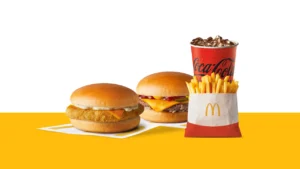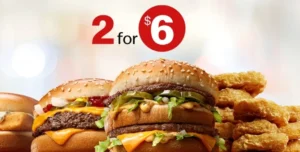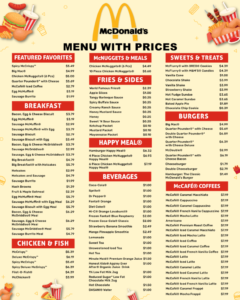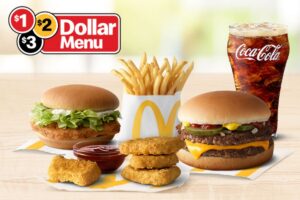McDonald’s vs. Liebeck: Controversial Coffee Lawsuit
McDonald’s, a leading global fast-food chain, is renowned for serving millions of customers daily across more than 100 countries. Since its inception in 1940, McDonald’s has become a symbol of quick service and affordable meals, with iconic items such as the Big Mac and Chicken McNuggets. Despite its global popularity and friendly branding, McDonald’s has faced significant legal challenges, the most famous being the McDonald’s vs. Liebeck coffee lawsuit. This case brought intense media scrutiny and highlighted key issues of consumer safety and corporate responsibility.
Importance Of The Comparison McDonald’s vs. Liebeck
Understanding the comparison between McDonald’s and the Liebeck case is crucial for several reasons:
- Corporate Responsibility: The case sheds light on how companies must balance operational efficiency with consumer safety. It underscores the need for corporations to take proactive measures to prevent harm.
- Consumer Rights: The Liebeck case emphasizes the extent to which consumers are protected and the responsibilities companies have to warn about potential risks.
- Legal System Impact: This case serves as a landmark in tort law, illustrating how a single incident can influence legal standards and corporate policies.
By exploring these aspects, we gain insights into the broader implications for consumer protection and corporate ethics.
Background Information
McDonald’s: A Brief History
| Year | Event | Details |
|---|---|---|
| 1940 | Founding | Richard and Maurice McDonald established the first McDonald’s drive-in restaurant in San Bernardino, California, focusing on a streamlined menu of hamburgers, fries, and beverages. |
| 1955 | Expansion | Ray Kroc, a milkshake machine salesman, joins McDonald’s and opens the first franchised restaurant in Des Plaines, Illinois. Kroc’s franchise model fuels rapid growth. |
| Today | Global Presence | McDonald’s operates over 39,000 restaurants in more than 100 countries. The brand is synonymous with consistency, affordability, and convenience. |
Evolution of the Business Model:
- Early Focus: Initial emphasis on speed and efficiency with a limited menu.
- Franchise Model: Ray Kroc’s introduction of franchising revolutionized the fast-food industry, making McDonald’s a global brand.
- Modern Innovations: The company adapts to changing consumer preferences by offering healthier options and leveraging technology for improved customer service, such as mobile ordering and delivery.
The Liebeck Case: What Happened? McDonald’s vs. Liebeck
The Liebeck case, officially known as Liebeck v. McDonald’s Restaurants, is a landmark legal case that began on February 27, 1992. Here’s a detailed breakdown:
- Incident: Stella Liebeck, a 79-year-old woman, purchased a cup of McDonald’s coffee from a drive-thru in Albuquerque, New Mexico. While trying to add cream and sugar in the passenger seat of her grandson’s car, the cup tipped over, spilling the hot coffee on her lap. The coffee served at temperatures between 180-190°F (82-88°C), caused third-degree burns on Liebeck’s thighs, buttocks, and groin area.
- Medical Impact: Liebeck suffered severe injuries that required hospitalization, multiple skin grafts, and extensive medical treatment.
- Legal Proceedings: Liebeck initially sought $20,000 to cover medical expenses. McDonald’s offered only $800. This led to Liebeck filing a lawsuit. The jury found McDonald’s liable for negligence due to its failure to adequately warn about the coffee’s extreme temperature. Liebeck was awarded $2.86 million in punitive damages, later reduced to $640,000.
Legal Implications Of McDonald’s vs. Liebeck
Overview of Tort Law
Tort law addresses civil wrongs where one party’s actions cause harm to another. It includes:
- Negligence: Failure to exercise reasonable care, leading to harm.
- Product Liability: Holding manufacturers accountable for products that pose safety risks.
- Strict Liability: Accountability for damages regardless of intent or negligence.
In the Liebeck case, tort law focused on:
- Negligence: McDonald’s was found negligent for serving coffee at a dangerously high temperature without adequate warnings.
- Product Liability: The case questioned whether McDonald’s had a duty to ensure their products were safe for consumers.
The Liebeck Lawsuit
Legal Arguments:
Plaintiff (Liebeck):
- Argued that McDonald’s served coffee at temperatures high enough to cause severe burns.
- Highlighted prior complaints about coffee burns and argued that McDonald’s ignored these warnings.
Defendant (McDonald’s):
- Claimed that Liebeck was responsible for her injuries due to her own handling of the coffee.
- Argued that consumers expect coffee to be hot and that hot beverages inherently carry risks.
Jury Decision:
- Liability: The jury found McDonald’s liable for negligence due to “reckless disregard” for customer safety.
- Damages: Initial punitive damages were set at $2.86 million but later reduced to $640,000 by the judge.
Impact on McDonald’s Policies
Policy Changes:
- Employee Training: McDonald’s revamped its training programs to ensure proper handling and serving of hot beverages.
- Warning Labels: The company introduced clearer warnings on coffee cups about the risks of hot drinks.
Industry-Wide Effects:
- Enhanced Safety Protocols: Many fast-food chains revised their safety procedures following the case.
- Consumer Education: Increased focus on informing customers about potential risks associated with hot food and beverages.
Public Perception And Media Coverage On McDonald’s vs. Liebeck
Media Reaction to the Liebeck Case
Initial Media Coverage:
- Sympathy for Liebeck: Early coverage highlighted Liebeck’s severe injuries and the potential negligence of McDonald’s.
- Shift in Narrative: As the case progressed, media coverage began to portray the lawsuit as an example of a “frivolous lawsuit,” sparking debates about legal excess and “lawsuit culture.”
Public Opinion:
- Support for Liebeck: Many people sympathized with Liebeck, recognizing the severity of her injuries and criticizing McDonald’s for not addressing safety concerns.
- Criticism of the Lawsuit: Others viewed the case as an overreaction, arguing that consumers should be more cautious with hot beverages.
Cultural Impact
Stereotypes and Discussions:
- “Hot Coffee” Stereotype: The case became a cultural reference for perceived abuses in the legal system, often cited in discussions about tort reform.
- Consumer Awareness: Raised awareness about the potential hazards of everyday products and the need for transparent communication regarding risks.
Comparisons and Contrasts
McDonald’s Business Practices
Operational Highlights:
- Consistency: McDonald’s maintains uniform standards across its global locations, ensuring a consistent customer experience.
- Safety Protocols: Emphasis on rigorous safety and hygiene practices, including proper handling of hot beverages.
Post-Liebeck Improvements:
- Safety Enhancements: Introduction of clearer warnings on coffee cups and improvements in employee training.
- Customer Service: Enhanced focus on customer interactions and addressing concerns proactively.
The Ethics of the Liebeck Case
Ethical Considerations:
- Corporate Accountability: The case raises questions about the extent to which companies should be held responsible for product safety.
- Consumer Protection: Highlights the need for businesses to prioritize consumer safety over profit and ensure adequate warnings for potential risks.
Lessons Learned
For Businesses:
- Prioritize Safety: Conduct thorough risk assessments and implement safety measures to prevent harm.
- Effective Communication: Provide clear warnings and instructions to help consumers make informed decisions.
Consumer Advocacy:
- Increased Awareness: Growing emphasis on corporate transparency and accountability.
- Stronger Protection Laws: Enhanced consumer protection laws and a greater focus on individual rights in the face of corporate negligence.
Conclusion: McDonald’s vs. Liebeck
The McDonald’s vs. Liebeck case remains a pivotal example of how corporate responsibility and consumer rights intersect. The lawsuit highlighted the critical need for businesses to prioritize safety and transparency, particularly when it comes to product risks like hot beverages. This landmark case not only reshaped McDonald’s policies but also influenced industry-wide safety practices and consumer protection laws. By understanding this case, we gain valuable insights into the balance between corporate duty and personal accountability, reinforcing the importance of proactive measures to ensure consumer safety and prevent legal disputes.
FAQs About McDonald’s vs. Liebeck
The McDonald’s vs. Liebeck case, also known as Liebeck v. McDonald’s Restaurants, was a 1992 lawsuit where Stella Liebeck, a 79-year-old woman, suffered severe burns from spilled hot coffee purchased from McDonald’s. The case centered on allegations of negligence due to the coffee’s excessively high temperature and inadequate warning labels.
Stella Liebeck was initially awarded $2.86 million in punitive damages by the jury, which was later reduced to $640,000 by the judge. The case ultimately settled out of court for an undisclosed amount. The lawsuit highlighted McDonald’s responsibility to ensure the safety of its products.
Following the Liebeck lawsuit, McDonald’s implemented several changes, including enhanced employee training on handling hot beverages and clearer warning labels on coffee cups. These changes aimed to improve customer safety and reduce the risk of similar incidents.
The Liebeck case had a significant impact on the fast-food industry, prompting many chains to reevaluate and update their safety protocols. It led to increased emphasis on product safety, improved consumer warnings, and more stringent training for handling hot items.
Key legal lessons from the McDonald’s vs. Liebeck case include the importance of corporate responsibility in product safety, the need for adequate warnings about potential risks, and the role of tort law in holding companies accountable for negligence. The case underscores the balance between consumer protection and corporate practices.
Must Read Articles
- McDonald’s Secret Menu
- McDonald’s $1 $2 $3 Dollar Menu With Prices
- McDonald’s Adult Happy Meal Toys
- McDonald’s Happy Meal Toys






